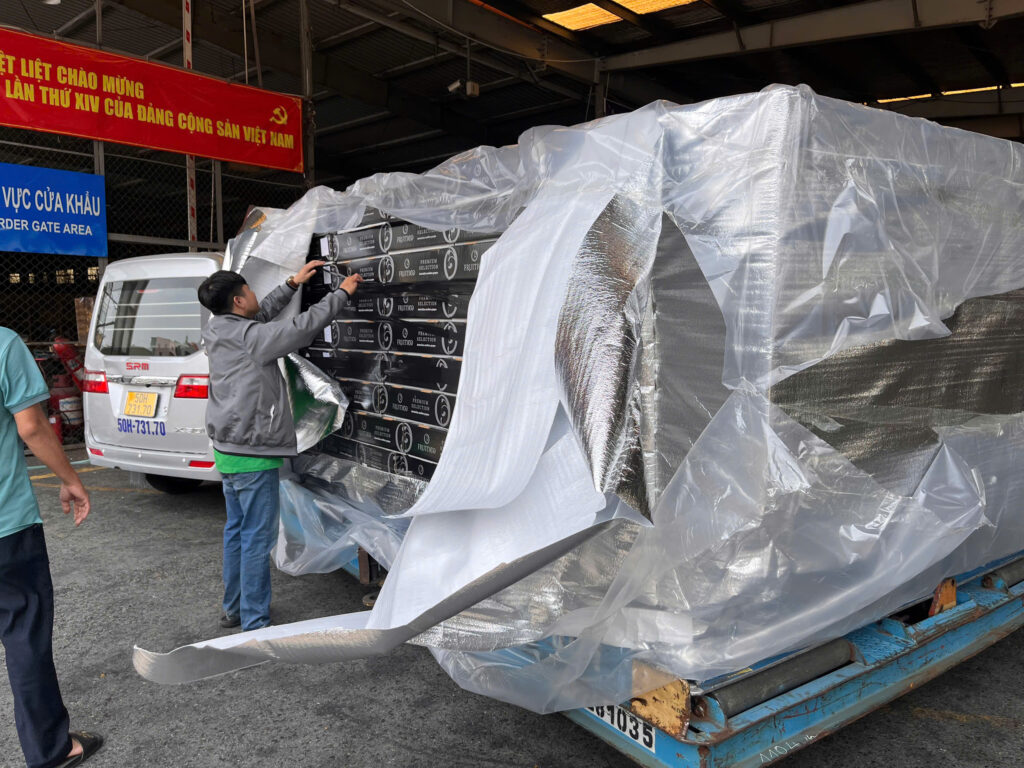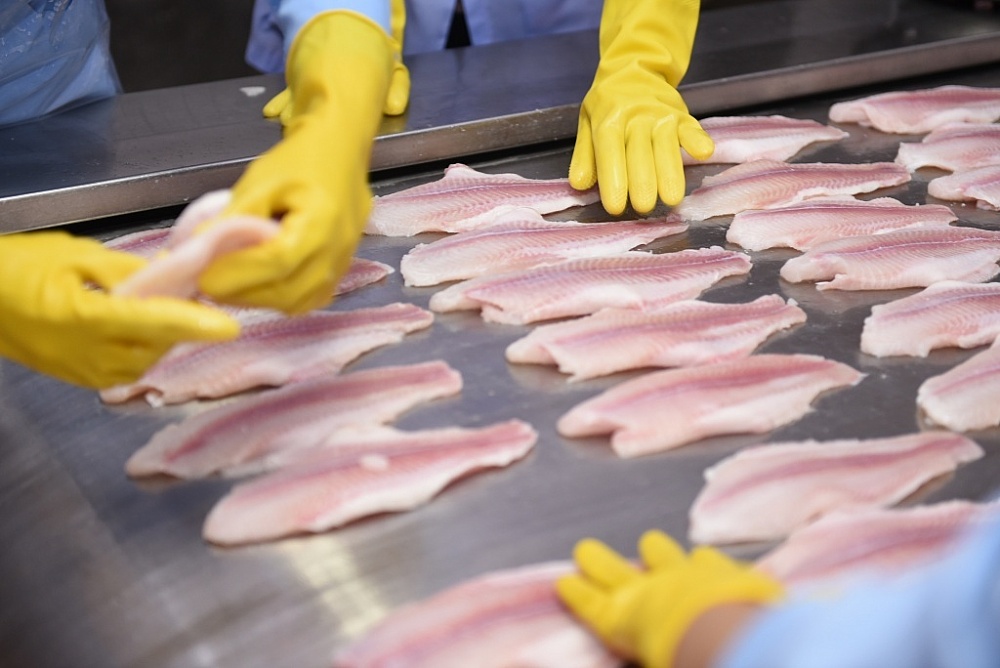The water level at the reservoir decreased to the point of completely exposing the ancient church of Sant Romà de Sau (from the 11th century) in Catalonia, Spain on April 7. Photo: ANADOLU AGENCY
Farmers in Southern Europe are facing a crop crisis. Months of drought have disrupted this year's harvest in Europe.
Spain's National Meteorological Forecasting Agency (AEMET) recently said that an extremely hot air mass from Africa moved north, causing temperatures to begin to rise in the Iberian Peninsula in the southwest. Europe on April 25 and 26. The agency warned of high temperatures, possibly reaching 40oC in some places, would put much of Spain at high risk of wildfires.
Farmers "sweat"
Winter and spring 2023 in Europe are warmer and drier than average, raising fears of a more severe drought than last year. Satellite images show clearly falling water levels in reservoirs in southern Europe.
According to Euronews TV channel, in Spain, ecologists warned farmer It may soon be impossible to sustain wheat and barley production. Crops such as olives and grain crops are also affected, and farmers find it difficult to have enough water to irrigate corn, sunflowers and cotton.
COAG, Spain's largest farmers' association, informed: "More than 3.5 million hectares of crops here have suffered irreparable damage." Also according to this organization, drought is currently affecting 60% rural areas of Spain.
“If rainfall does not improve in the next few days, rain-fed crop yields, especially winter cereals, will decrease significantly” – researcher Sergio Vicente-Serrano at the Pyrenean Institute of Ecology in the Zaragoza province of Spain warned.
Other European countries also face drought. Ms. Samantha Burgess, deputy director of the Copernicus Climate Change Service (C3S) of the European Union (EU), said: "Normally, especially in Southern European countries, we expect more rain in winter. But that didn't happen this year in many of those countries. So we entered the growing season with very low soil moisture.”
Farmers are also competing with other industries for water resources. For example, the French energy sector also needs a lot of water for hydroelectric power and water to cool nuclear reactors. After the driest winter in 60 years, the French Government ordered water conservation in February and March this year.
What is the solution?
According to Bloomberg News, studies show that human-caused climate change is exacerbating the situation hot and droughts around the world. Last year, Europe experienced its driest summer in about 500 years, while other parts of the Northern Hemisphere, from the US to China, also suffered from unusual drought.
Speaking before the Spanish Parliament last week, Spanish Prime Minister Pedro Sanchez said the government considered the drought "one of the central political discussions for the country in the coming years".
Last year was the hottest year on record for Spain as temperatures increased by 1.3oC since the 1960s. Currently, one of the worst affected areas is the Catalonia region in northeastern Spain. Nearly three years of drought have reduced water levels in Catalonia's reservoirs to around 27% of capacity.
According to a recently published report by C3S, the climate crisis had "frightening" impacts in Europe last year, causing many deaths and withering crops. Researchers point out the only way to limit the growing damage is to quickly cut carbon emissions.
“We cannot end these climate impacts. We can only limit them by rapidly reducing greenhouse gas emissions" - said Dr. Rebecca Emerton, main author of the report. Ms. Burgess, deputy director of C3S, emphasized: "We also need to look for new technologies that use less water and find ways to recycle as much water as possible."
In Italy, the government is preparing an aid package worth 7.8 billion euros and a water supply plan after water levels in the Po River - Italy's longest river - drop. Millions of Italians may have to conserve water.
In L'Espluga de Francoli, a town of 3,600 people in Catalonia, authorities were forced to turn off water at night to save money. Maria Gonzalez, a 24-year-old resident of this town, said: "We keep water in bottles so we can brush our teeth and wash our faces in the morning." At night, locals shower at work or at the gym.
Hotter than other continents
According to DW Radio (Germany), figures from the United Nations show that Europe is warming faster than other continents. The average temperature here over the past five years has been about 2.2 degrees Celsius higher than in the pre-industrial period (1850-1900).
More than 20,000 people, including many elderly and vulnerable groups, died in heatwaves in Western Europe in 2022. There were more than 3,000 heat-related deaths in England alone, where temperatures were the first exceeds the threshold of 40 degrees Celsius.







